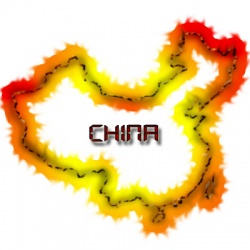The Great Firewall of China
From Computing and Software Wiki
The Great Firewall of China is a term used to describe the country of China's vast and sophisticated Internet firewall that regulates what Chinese citizens can see, access, and create from their computers. This title is a play-on-words of China's great physical monument, the Great Wall of China and strengthens arguments for Net Neutrality.
Contents |
Introduction
The Internet is a vast pool of knowledge and information that should be accessible to all those who wish to learn. With little ownership to its entirety, it is easy for any user to simply create and express opinions to the world. This can sometimes lead to uneasiness through many organizations as this area is not governed. Most government institutions accept this reality, however China has taken a different route. Through a series of censorship, data filtering, and content blocking schemes, the government of China attempts to keep an eye on content that gets through the countries borders. It is estimated that over 30,000 monitor its countries web use to try to ensure that their is no online dissent. [5]
Censorship in China
In China there is heavy sensorship on media and journalists. They are forced to conform to the idealisms of the Communist Chinese party. "In general, China attempts to suppress publication of information related to "subversive" political movements and controversial state actions, including the Tiananmen Square uprising, support for a free Tibet, the Falun Gong spiritual movement, criticism of China's human rights and social justice records, independent news media, and pro-democracy / pro-Western commentary." [2] To say the least, Internet content regulation is heavy and like no other country in the world. This often forces citizens to err on the side of caution when using the Internet and posting content as doing so could land users in legal trouble. Laws tend to be vague and can cover a large grey area of issues which makes it easier to supress individuals.
Content Filtering
IP Address Blocking
China attempts to block access to a website that is determined to be inappropriate for its citizens by blocking both its URL and IP address to ensure that it can not be reached. Sometimes it is more convienient for the entire domain space to be blocked if most websites contained in the domain carry similar content is considered harmful.
Email and Blog Filtering
Email filtering is left up to the Internet service providers instead of being caught elsewhere. The filtering system works similar to how many spam filtering programs would work. The filters search for patterns, and keywords in an attempt to determine if a message is inappropriate or not.[2] It seemed that this filtering, like spam, is inconsistent due to the many encodings and languages that can be used.[2] If a message is thought to have a controversial subject behind it the email would not be sent to the intended destination. Blogging works in a similar manner where keywords or phrases are searched for and blogs are blocked accordingly.
DNS Redirection
Servers in China have been known to redirect users to different addresses than were requested, possibly to in the future lead them to fake webpages or to possibly monitor access to different sites. [3]
HTML Keyword Filtering
This method works by running a webpage through a filtering system that also attempts to detect keywords. Once the software found an invalid keyword, it would truncate the webpage causing the user to see very little of the actual content. [3]
Major Blocked Websites
At some point in time each of these major websites have been blocked on behalf of the Chinese Government. They include media sites, blogging, internet forums, political organizations, and government organizations. For working list of websites blocked you can refer to this site this site. The following is a few of the popular sites that have caused controversy in the Republic of China:
- Youtube - A popular video sharing site where users can upload, view, and share video clips. [4]
- Flickr - An image hosting site, and web services suite. [4]
- Human Rights Watch - An organization that researches and promotes human rights. [4]
- Amnesty International - An organization devoted to preventing abuse in the world. [4]
Conclusions
The content filtering system in China is always evolving and getting better. New systems are implemented all the time and China does little to acknowledge that they actually sensor their data at the border. It can be a bit disturbing that thoughts and speech can not be free and willing. The content filtering system in China attempts to suppress and conform its people through technical means and censorship of to the outside world. It is important that people learn about this system so that they can gain their own views on the subject of Internet regulation. This is just one example of why Network Neutrality is an important concept and should be argued for time to come.
References
[1] http://www.cl.cam.ac.uk/~rnc1/ignoring.pdf
[2] http://opennet.net/studies/china/
[3] http://unpan1.un.org/intradoc/groups/public/documents/apcity/unpan011043.pdf
[4] http://en.wikipedia.org/wiki/List_of_websites_blocked_in_the_People's_Republic_of_China
[5] Business Week:The Great Firewall of China
See also
Computer Network Traffic Shaping
External links
Internet Sensorship in the People's Republic of China
--Drucej 21:03, 13 April 2008 (EDT)

